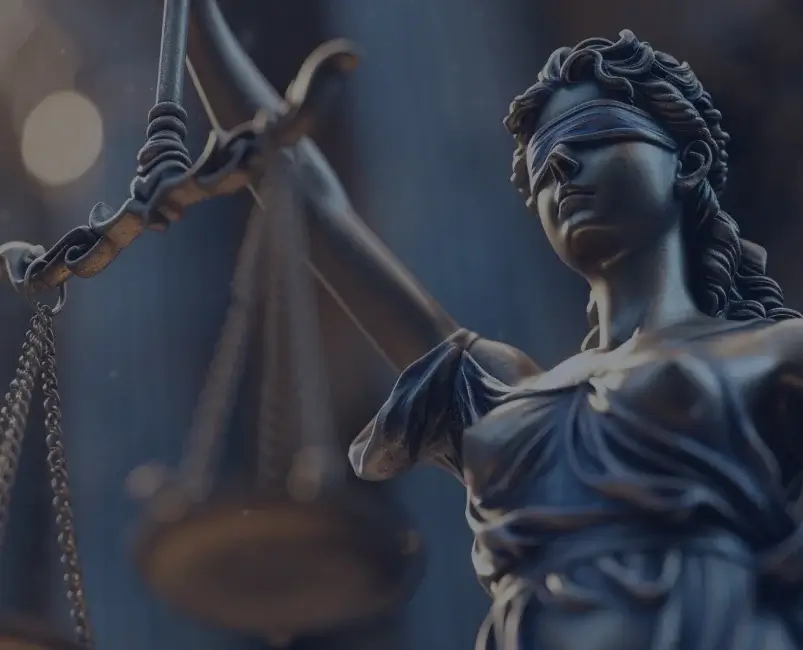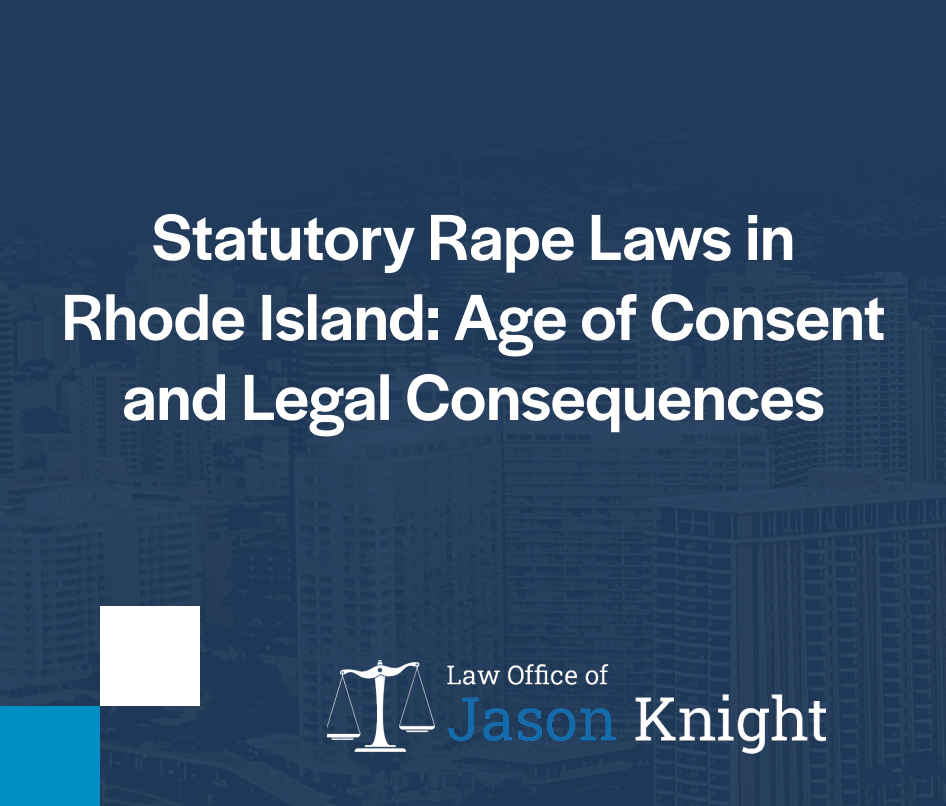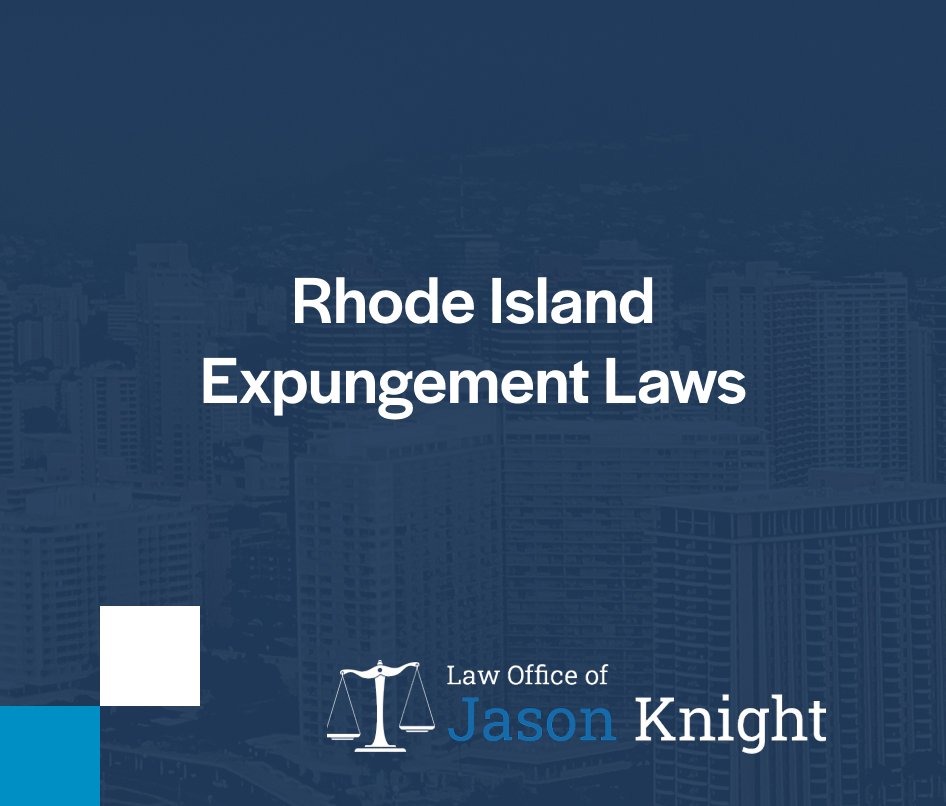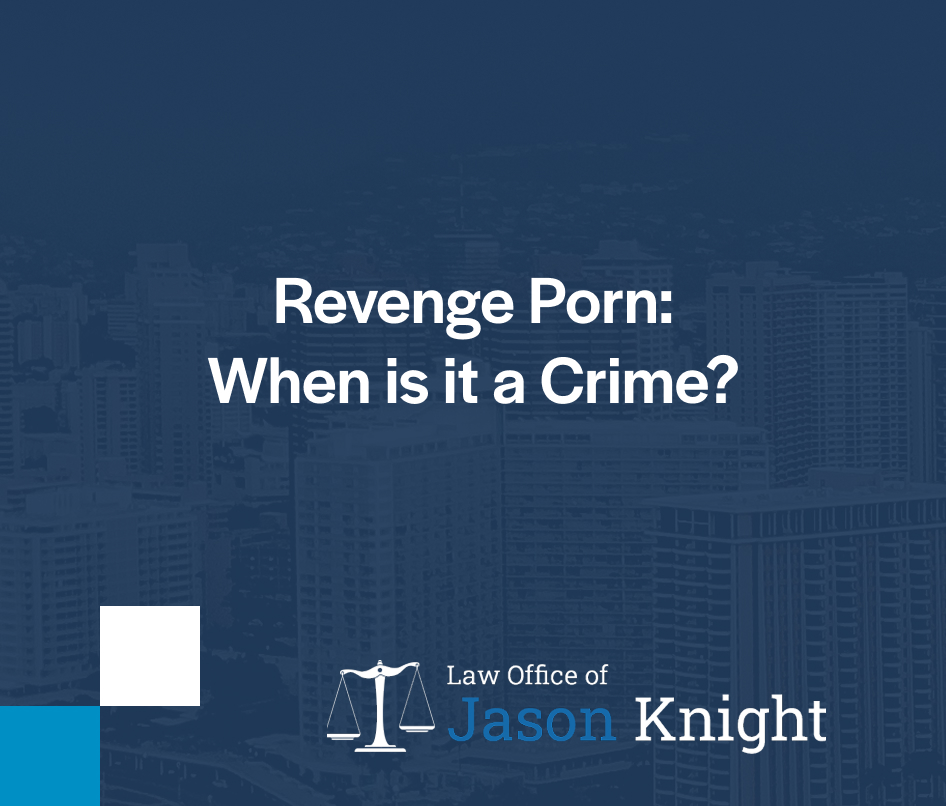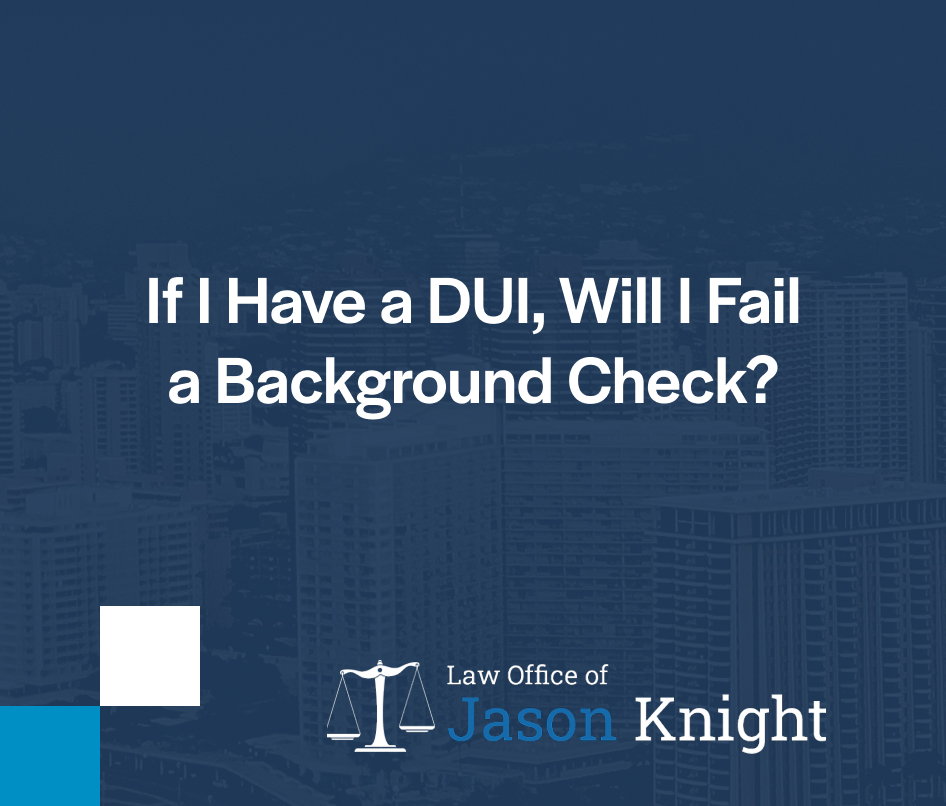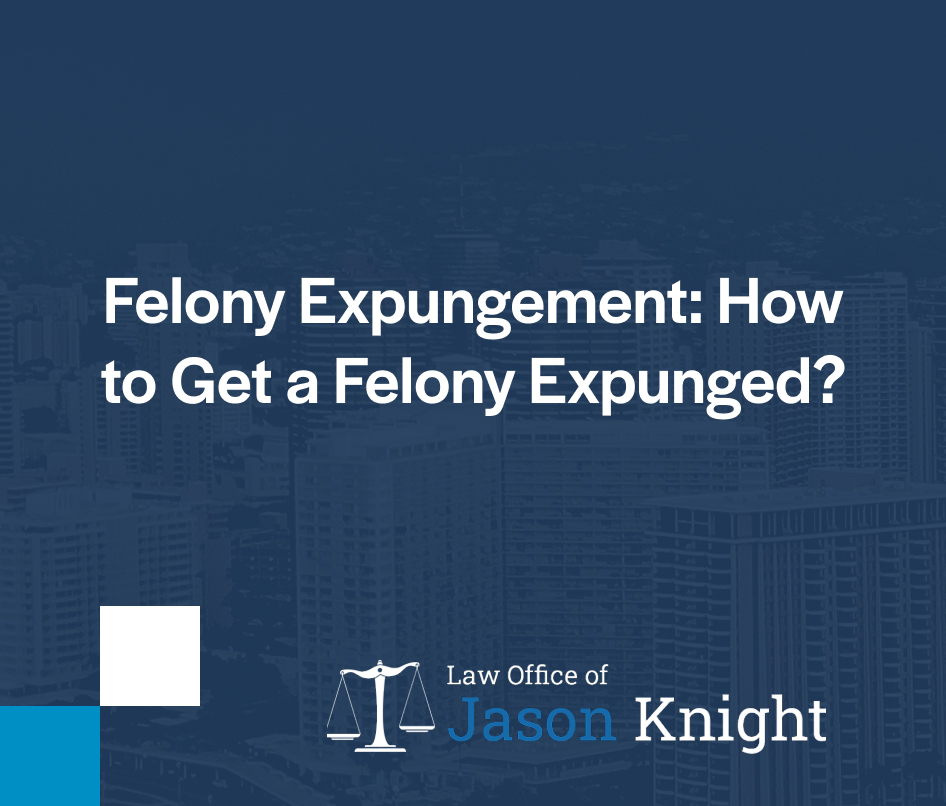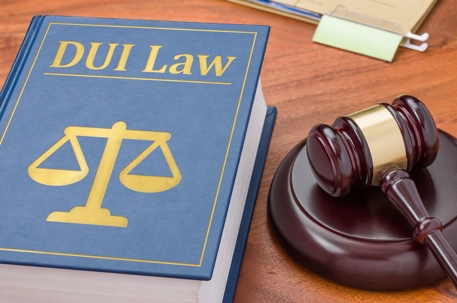When does a mistake or misunderstanding become a crime? In Rhode Island, the answer lies in understanding the statutory rape definition and the laws that govern it. Statutory rape refers to sexual activity with someone below the age of consent, regardless of whether the younger party agrees to the act. Understanding the age of consent and its implications is crucial for those navigating Rhode Island’s legal landscape.
At the Law Office of Jason Knight, we know how overwhelming being accused of a crime can feel. With 17 years of experience in criminal law and a background as a former prosecutor, Jason Knight has the expertise to protect your rights and guide you through the complexities of the criminal justice system.
The stakes are high—statutory rape cases involve deeply personal circumstances and carry life-changing consequences. Whether you’re seeking clarity, facing charges, or looking for a Rhode Island statutory rape defense, this guide explains the legal framework, the penalties involved, and the critical role an experienced defense attorney can play. Keep reading; then contact the Law Office of Jason Knight for a free case review and take the first step toward safeguarding your future.
What Is the Statutory Rape Definition in Rhode Island?
The law defines statutory rape as sexual contact involving a person who cannot legally consent due to their age. Known as the “age of consent,” Rhode Island sets it as 16 years old, meaning that anyone under 16 cannot legally engage in sexual activity, even if they willingly agree.
Statutory rape cases are charged as third-degree sexual assault and often differ from other sexual assault allegations. These cases focus solely on individuals’ age, not whether coercion or force occurred. This distinction can make these cases particularly complex—and emotionally charged. For example:
- If a 19-year-old engages in consensual sexual activity with a 15-year-old, it may be considered statutory rape under Rhode Island law.
- However, close-in-age exceptions, known as the Romeo and Juliet Law, may apply, permitting consensual activity between individuals with an age gap of less than three years.
Courts strictly enforce statutory rape laws, and ignorance of the younger party’s age is rarely a defense.
What are the Legal Consequences of Statutory Rape in Rhode Island?
Statutory rape charges carry serious consequences that extend beyond legal penalties. If convicted, individuals may face incarceration, fines, and registration as a sex offender. These consequences can derail careers, strain personal relationships, and permanently impact one’s reputation.
Here’s a breakdown of potential legal penalties:
- Misdemeanor offense. In cases involving smaller age gaps (e.g., two years), penalties may include jail time of up to one year and fines.
- Felony offense. Penalties increase substantially for significant age differences or cases involving additional allegations (such as coercion or exploitation). Felony convictions may result in up to five years of imprisonment and mandatory sex offender registration.
In Rhode Island, courts also consider mitigating factors, such as the relationship between the parties and whether the older individual demonstrated predatory behavior. These nuances highlight the importance of working with a skilled defense attorney and a tailored legal strategy.
Why Age Matters: Age of Consent, Rhode Island
The age of consent sets the legal boundary for consensual sexual activity. In Rhode Island, individuals aged 16 and older can legally consent to sexual relationships. For those under 16, any sexual contact is deemed non-consensual by law, regardless of mutual agreement.
Understanding the age of consent in Rhode Island also requires recognizing exceptions:
- Close-in-age exemptions. Designed to avoid penalizing consensual relationships between teenagers, these provisions allow individuals within three years of age to engage in sexual activity legally.
- Power dynamics. Cases involving individuals in positions of authority, such as teachers, coaches, or employers, may involve heightened scrutiny and additional charges.
This framework reflects the state’s effort to balance protecting minors with acknowledging the realities of youthful relationships.
Building a Rhode Island Statutory Rape Defense
Facing statutory rape charges can be overwhelming. However, an experienced defense attorney can explore several strategies to protect your rights and build a Rhode Island statutory rape defense, including the following:
- Challenging the evidence. A skilled attorney asks questions such as, “Was the alleged victim’s age accurately represented?” and “Did the accused have a reasonable belief that the individual was older than 16?” They also investigate inconsistencies or errors that may undermine the prosecution’s case.
- Establishing consent and context. Although statutory rape cases focus on age, understanding the broader context—such as relationships, consent, and close-in-age exceptions—can strengthen the defense.
- Negotiating plea deals. In some cases, reducing charges or securing alternative sentencing (such as probation or counseling) may be possible.
- Protecting future opportunities. An experienced attorney will work to minimize a charge’s long-term impact, including avoiding or mitigating sex offender registration requirements.
The Law Office of Jason Knight understands the importance of crafting individualized strategies. Whether through negotiation or litigation, Jason Knight will fight tirelessly to safeguard your future.
Your Best Defense: The Law Office of Jason Knight
Statutory rape laws in Rhode Island protect minors, but they can also ensnare individuals in complex legal battles. Whether you’re navigating questions about the age of consent in Rhode Island or seeking a robust Rhode Island statutory rape defense, the right attorney can be your strongest ally. Don’t delay. Early intervention allows us to:
- Secure evidence that supports your defense,
- Identify procedural errors that could result in case dismissal, and
- Engage with prosecutors to negotiate favorable outcomes.
At the Law Office of Jason Knight, we understand what’s at stake and bring a compassionate, non-judgmental approach to every case. As a former state prosecutor, Jason Knight offers unparalleled insight into how these cases are prosecuted, enabling him to build strong defenses. With thousands of cases handled, we take pride in providing trial-tested advocacy and free case reviews. We are here to fight for your rights, protect your liberty, and provide the support you deserve. Contact us today for a free case review. With 24/7 availability, compassionate counsel, and a relentless commitment to justice, we’ll stand by your side every step of the way.


